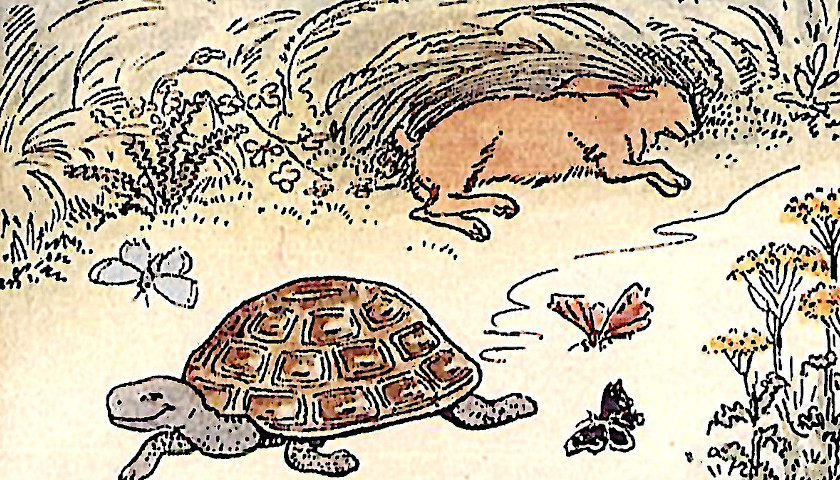by Roger Kimball
Not to be overly paradoxical about it, but the names Donald Trump, Adam Schiff, and Jerry Nadler will not appear in this essay. Like you, I am weary of that shrill and unproductive static. Let us, then, take a brief holiday and consider a different sort of problem, a problem that stands behind—admittedly pretty far behind—that static I mentioned and which we might do well to think about. Let us, for lack of a better phrase, call it “Modernity and Its Discontents.”
No educated person in the English-speaking world can hear that phrase and fail to think of the memorable English title that James Strachey gave to Freud’s late masterpiece: Civilization and Its Discontents. Pressed to give a single word summary of what Freud concluded about those Unbehagen, those “discontents,” one could do worse than offer the brief imperative “No.” “Sad is eros, builder of cities,” W. H. Auden wrote, and that sadness, Freud thought, followed inevitably from the basic instinctual denials that made civilization possible.
“Modernity,” it will be pointed out, is not quite, or perhaps I should say “not hardly,” coterminous with “civilization.” If pressed to give a one-word précis to describe the Unbehagen in die Modernität, I might venture to suggest that it centrally involved the diminishment, the attenuation, the abandonment of that imperative denial that Freud analyzed.
Unfortunately, the loss or—more to the point—the active repudiation of “no” does not necessarily get you to any positive “yes.”
That’s the idea, of course: that by kicking over the traces, by saying “no” to all those inherited constraints, habits, structures, customs, prejudices, and dispositions that made us who we are, we thereby emerge into a glorious sunlit upland in which we enjoy the cities but dispense with the sadness.
The reality has been somewhat different. George Orwell gave dramatic expression to one set of differences when he noted that “For two hundred years we had sawed and sawed and sawed at the branch we were sitting on. And in the end, much more suddenly than anyone had foreseen, our efforts were rewarded, and down we came. But unfortunately there had been a little mistake. The thing at the bottom was not a bed of roses after all, it was a cesspool full of barbed wire.”
Now, Orwell was a gloomy chap, and it would certainly be possible to instance plenty of other less dire eventualities that await the civilizational carpentry he describes. Everyone reading this, I’d wager, has done time with his own sort of saw, and the vast majority of us find ourselves in situations far less horrible than the barbed wire bedizened pit Orwell imagined.
And yet, and yet . . . It’s hard to deny that Orwell was on to something. At the center of modernity’s discontents, I believe, is a widespread sensation that we are precariously suspended over something minatory and unfathomable, combined with the nagging suspicion that it wasn’t always thus, that there was a time when one’s feet touched the ground and the landscape around us bore the familiar traces of human habitation. Why that is no longer the case, or, at least, can no longer be taken for granted as a cultural given, has been a matter for speculation at least since Matthew Arnold spoke of the melancholy, long withdrawing roar of the Sea of Faith on ebb tide.
It might be pointed out that Arnold’s image is potentially rather cheering. After all, a tide that ebbs is also presumably a tide that eventually floods, though it is not at all clear that we’ve had much evidence of that uplifting periodicity.
Indeed, part of what makes the withdrawal Arnold evokes so melancholy is that it impresses most of us more as an irrefragable feature of modernity than a contingent option. It is not, if we are honest, something we can just dispense with. It is, for better or worse, probably for better and worse, part of who we moderns are.
That said, I also believe that there are several features of our situation that are often presented as inevitable which in fact are matters of contention, deliberation, remediation, even, if I may employ an unfashionable term, choice.
Anything like a full survey of this waterfront would take a book, or rather a shelf full of books; For now, I’d simply like to touch briefly and incompletely on what I take to be three negotiable elements of that dispensation we call modernity.
The Velocity of Modernity
The first, most politically malleable element I call “velocity.” It is adumbrated by a slight variation on title of this essay, “The Tortoise and the Hare Reconsidered.” I don’t have a lot to add to the wisdom of Aesop, namely, that the fastest way to your goal may be the slowest and most leisurely.
Now, that is not an insight greatly appreciated by the modernness of modernity. On the contrary. Faster. Brighter. Sooner. Newer. More efficient. More innovative. More tomorrow and less yesterday. More hares, that’s to say, and fewer tortoises. That’s what is wanted.
Velocity is a signal marker of modernity—a glory, perhaps, as well as a discontent, but certainly a leading characteristic.
There are many sides to modernity’s love affair with velocity. Here I’d like to consider just one: its assault on deliberateness. Back in 2008, when what has come to be called the Great Recession was just beginning, Rahm Emanuel, then Barack Obama’s chief of staff, gleefully said, “You never let a serious crisis go to waste.”
What he meant was that a crisis makes people anxious and therefore vulnerable, and that it is easier in periods of crisis to exploit that vulnerability and push through initiatives to enlarge government and meddle more.
I’d like to urge caution about that impulse. In politics, I would say, deliberateness is an undervalued virtue, particularly in periods of crisis. Pace Rahm Emmanuel, I’d say that you never want to let a serious crisis upset your judgment. As the British writer Daniel Hannan once observed, “Most disastrous policies have been introduced at times of emergency.” How often have you heard a politician or government bureaucrat tell you that “Doing nothing is not an option”? In fact, as Hannan rightly noted, “Doing nothing is always an option, and often it is the best option.” This was something that Calvin Coolidge acknowledged when he said to a busybody aide: “Don’t just do something; stand there!”
In other words, I’d like to put in a word for what Walter Bagehot celebrated as “slow government.” The American socialist and perpetual presidential candidate Norman Thomas defined socialism as “democracy in a hurry.” Socialism’s velocity, Thomas thought, was a major part of what recommended it. Bagehot disagreed. “The essence of civilization,” he wrote, “is dullness.”
In an ultimate analysis [Bagehot explained], it is only an elaborate invention . . . for abolishing the fierce passions, the unchastened enjoyments, the awakening dangers, the desperate conflicts, . . . the excitements of a barbarous age, and to substitute for them indoor pleasures, placid feelings, and rational amusements. That a grown man should be found to write reviews is in itself a striking fact. Suppose you asked Achilles to do such a thing, do you imagine he would consent?
Bagehot’s point was that, in an advanced civilization, deliberateness, circumspection, and adherence to process are virtues that save us from the myopia of impulsiveness, not to mention the rage of Achilles.
Bagehot was not, I hasten to add, advocating quietism or inaction. If the English had mastered the art of slow, deliberate government, that mastery did not hinder an energetic pursuit of their own interests. The achievement was moderation, yes, but it was what Bagehot called “animated moderation,” moderation chastened by deliberateness but underwritten by energy. “When we have a definite end in view,” Bagehot wrote, “we can act well enough. The campaigns of our soldiers are as energetic as any campaigns ever were; the speculations of our merchants have greater promptitude, greater audacity, greater vigor than any such speculations ever had before.” But all that action takes place in a framework of circumspection. It is the deliberate animation of the tortoise, not the frenzied gesticulations of the hare.
As an aside, let me mention that James Madison would have approved of Bagehot’s recommendation and aligned himself on the side of the tortoise. As Greg Weiner shows in Madison’s Metronome, the great Federalist author regarded the Constitution as an instrument for regulating the tempo of politics, a means of putting the brakes on those “fierce passions” of which Bagehot spoke.
In this context, Weiner draws a fruitful distinction between “governing,” on the one hand, and “policymaking,” on the other. Governing, he observes, “calibrates the extent of policymaking to public needs,” while the ethos of policymaking assumes that the current state of affairs, whatever it is, is wanting. For the policymaker, Weiner notes, “The drive for perfection and ‘rational results’ . . . makes satisfaction a vice and change a constant need. Political leaders are thus judged by the volume of policymaking rather than outcomes.”
Weiner’s distinction between governing, which starts with an affirmation of present realities, and policymaking, which begins with an assumption of their inadequacy, brings us close to what the philosopher Michael Oakeshott analyzed as “rationalism” in politics. “The evanescence of imperfection,” Oakeshott observed, “may be said to be the first item of the creed of the Rationalist.” In Weiner’s terms, the Rationalist is on the side of policymaking, not governing; he is a hare, not a tortoise, an apostle of velocity in politics and constant innovation in life.
Living With Imperfection (or Needing the Dragon)
This brings me to the second negotiable element in the dispensation of modernity. I’m not sure that there is a single word to describe what I mean. It has something to do with the place of imperfection in the metabolism of human life, or, more precisely, it has something to do with our attitude towards imperfection and the extent to which we believe that our well-meaning interventions can eradicate it. The hares of the world look forward to all sorts of splendid futures when humanity has shuffled off the accumulated incapacities that have hitherto blighted life and forestalled utopia.
The tortoises, on the other hand, wonder whether dispensing with our imperfections, assuming that were possible, would not also mean dispensing with those features that made us capable of whatever moral and political achievements we had in fact made.
Oakeshott touched on the distinction I am trying to get at when he noted that while the Rationalist might acknowledge that there were problems that were intractable, “what he cannot imagine is politics which do not consist in solving problems, or a political problem to which there is not ‘rational’ solution.”
The late Kenneth Minogue, a past president of the Michael Oakeshott Society, had a marvelous image for the rationalist disposition that Oakeshott describes. It is, Minogue said, a bit like the story of St. George and the dragon.
After many centuries of superstition, St. George, having donned the mantle of beneficent Rationality, finally appears somewhere about the 16th century. He slays the monsters of kingship and religious intolerance before moving on to such social evils as prison conditions, slavery, inherited privilege, patriarchy, and environmental insensitivity. “But unlike St. George,” Minogue observed, “he didn’t know when to retire.”
The more he succeeded, the more he became bewitched with the thought of a world free of dragons, and the less capable he became of ever returning to private life. He needed his dragons. He could only live by fighting for causes—the people, the poor, the exploited, the colonially oppressed, the underprivileged, and the underdeveloped. As an aging warrior, he grew breathless on his pursuit of smaller and smaller dragons.
It should be noted that the smallness of the dragons pursued does nothing to mitigate the ferocity of St. George’s sallies or the formidable nature of the weapons he deploys.
The example of John Stuart Mill is instructive in this context. One of the curious features of Mill’s thought was the assumption that the concerted application of reason to social problems would simultaneously lead to a greater unanimity of opinion on all important issues and, at the same time, an increased eccentricity, individuality, and more robust “experiments in living.”
“As mankind improve,” Mill said, “the number of doctrines which are no longer disputed or doubted will be constantly on the increase; the well-being of mankind may almost be measured by the number and gravity of the truths which have reached the point of being uncontested. The cessation, on one question after another, of serious controversy is one of the necessary incidents of the consolidation of opinion.”
The process Mill envisions slyly undertakes the destruction of inherited custom and belief precisely in order to construct a bulwark of custom and belief that can be inherited. As Mill put it in his Autobiography,
I looked forward . . . to a future . . . [in which] convictions as to what is right and wrong, useful and pernicious, [will be] deeply engraven on the feelings by early education and general unanimity of sentiment, and so firmly grounded in reason and in the true exigencies of life, that they shall not, like all former and present creeds, religious, ethical, and political, require to be periodically thrown off and replaced by others.
So: a “unanimity of sentiment” is all well and good as long as it is grounded in the “true exigencies of life”—as defined, nota bene, by J. S. Mill. It’s nice work if you can get it, and boy did Mill get it!
Mill was a proselytizing rationalist on the pattern Oakeshott described in his famous essay and Minogue evoked with his fable about a modern St. George and the miniature dragons.
Politics for Mill was essentially a matter of “solving problems.” His great rhetorical feat was to convince the world that this process was synonymous with the operation of reason itself. “We’re all socialists now,” said the future King Edward VII in 1895. He may have been a bit precipitate in that declaration, but it certainly seems that we’re all Millians now, at least with respect to our basic assumptions about the nature of politics and that evanescence of imperfection of which Oakeshott spoke.
But just as we can decline to celebrate the cult of velocity that aligns modernity with the party of the hares, so we can question Mill’s identification of “rational” with his program of liberal calculation. The English historian Maurice Cowling was on to something when he observed that to argue with Mill, on Mill’s terms, was to concede defeat. “Rational,” Cowling pointed out, does not have to mean conclusions reached by critical self-examination as Mill insisted. “Prejudice” is not, as Mill taught, necessarily synonymous with bigotry: it may, on the contrary, be used to describe commitments about which argument has been declined: but to decline argument is not in itself irrational.
Another day, it would be interesting to talk more about the word “prejudice” and ask what happened between the time that Edmund Burke could speak of that “just prejudice” which rendered a man’s virtue his habit and today when “prejudice” has been firmly enrolled in the index of reactionary vices. Rescuing the word “prejudice” from its seemingly unredeemable membership in the roll call of liberal obloquy would be a great victory for the conservative spirit. For now, however, I’d like to touch very briefly on what I take to be a central antinomy of that species of overbearing rationalism for which Mill was such a beguiling spokesman.
The antinomy is this: the liberalism Mill advocated is built fundamentally on openness to other points of view, even to those points of view whose success would destroy liberalism. Tolerance to those points of view is a prescription for suicide. But intolerance betrays the fundamental premise of liberalism, i.e. openness. Rock, meet hard place.
Mill aimed to achieve a society that is maximally tolerant. But he thereby at the same time gave maximum scope to the activities of those who have set themselves to achieve the maximally-intolerant society. Maximum tolerance, it turns out, leads to maximum impotence. The refusal to criticize results in a moral paralysis. That paralysis is the secret poison at the heart of Mill’s liberalism. Mill’s “one very simple principle”—that coercive public opinion ought to be exercised only for self-protective purposes—was, as Mill’s great critic James Fitzjames Stephen noted, “a paradox so startling that it is almost impossible to argue against.”
Note the adverb. Stephen managed to fill about 300 pages arguing against it. It pains me to report that although he won the argument—as the philosopher David Stove put it, Stephen made “mincemeat” out of Mill’s polemic in On Liberty—nevertheless, he lost the battle, which is to say that the hares of Millian liberalism with their addiction to moral velocity and a species of rationalism that is as arrogant as it is abstract have triumphed in the hearts of established opinion. That attack on customary, conventional wisdom has become the new customary, conventional opinion. That prejudice against prejudice has become the new and unspoken prejudice the public everywhere embraces without quite acknowledging.
Can We Really be Disinterested Spectators?
There are, however, cracks in the carapace of this rationalist consensus, cracks that can be worked at to reveal what I take to be a third negotiable element in Modernity’s Discontents. We glimpse this third element wherever Mill’s doctrine brushes against the moral or spiritual exigencies of human reality. In his book Utilitarianism, Mill writes that “as between his own happiness and that of others, justice requires [everyone] to be as strictly impartial as a disinterested and benevolent spectator.”
But can that be? Or is it merely benevolent sounding twaddle? If Mill were right about this, Stephen observed, “I can only say that nearly the whole of nearly every human creature is one continued course of injustice, for nearly everyone passes his life in providing the means of happiness for himself and those who are closely connected with him, leaving others all but entirely out of account.” And this, Stephen argues, is as it should be, not merely for prudential but for moral reasons:
The man who works from himself outwards, whose conduct is governed by ordinary motives, and who acts with a view to his own advantage and the advantage of those who are connected with himself in definite, assignable ways, produces in the ordinary course of things much more happiness to others . . . than a moral Don Quixote who is always liable to sacrifice himself and his neighbors.
As Stephen implies, there is an aroma of unreality, a quality of the fantastic, that rises from the anemic currents of the rationalism Mill advocates.
There is also an unavoidable spiritual thinness. Mill prided himself in overcoming or superseding the religious and social prejudices of the past. The question is whether man can jettison the ground that made him what he is without at the same time jettisoning his humanity. The sorts of questions that formed the title of Gauguin’s famous picture: “Where Do We Come From? What Are We? Where Are We Going?”—these are the sorts of existential or religious questions, unposeable by any utilitarian calculus, that are centrally involved with our humanity, and ultimately unavoidable by any hare-like recourse to the distractions of velocity.
“Religion,” as the philosopher Leszek Kolakowski observed, “is a paramount aspect of human culture. Religious need cannot be ex-communicated from culture by rationalist incantation. Man does not live by reason alone.”
Kolakowski shows how the tendency to believe that all human problems have a technical solution is an unfortunate inheritance from the Enlightenment—“even,” he notes, “from the best aspects of the Enlightenment: from its struggle against intolerance, self-complacency, superstitions, and uncritical worship of tradition.”
In other words, there is much about human life that is not susceptible to human remedy or intervention. Our allegiance to the ideal of unlimited progress is, paradoxically, a dangerous moral limitation that is closely bound up with what Kolakowski calls the loss of the sacred. “With the disappearance of the sacred,” he writes,
which imposed limits to the perfection that could be attained by the profane, arises one of the most dangerous illusions of our civilization—the illusion that there are no limits to the changes that human life can undergo, that society is “in principle” an endlessly flexible thing, and that to deny this flexibility and this perfectibility is to deny man’s total autonomy and thus to deny man himself.
I have used a lot of antiquated words in this essay: “choice,” “prejudice,” and just now “sacred.” Perhaps the most telling—it is the name of that third negotiable element I mentioned a moment ago—is “taboo,” an acknowledgment of the non- or suprarational in human affairs. In an important essay called “Modernity on Endless Trial,” Kolakowski argues that “the disappearance of taboos” is “the most dangerous characteristic of modernity.” Why? Because without that indelible ground of unarguable repudiation human reality is little more than raw material, susceptible to endless manipulation by whatever fashionable “rationalism” happens to rule.
The British philosopher Roger Scruton made a kindred point when he argued that if Enlightenment is a desirable thing, so too is a certain quota of “endarkening.” Moral education, Scruton observes, cannot be a purely “enlightened” one of calculating long-term profit and loss. It must also involve an “endarkened” and “endarkening” component, through which one is taught “ precisely to cease [one’s] calculations, to regard certain paths as forbidden, as places where neither profit nor loss has authority.”
Scruton elicited a large quota of liberal obloquy for speaking up for taboo. Hares do not countenance such irrational impediments. Their response to the tortoises who deploy them is a mixture of loathing, hysteria, and contempt. But Scruton was right. As another tortoise, G.K. Chesterton put it, “The madman is not the man who has lost his reason. The madman is the man who has lost everything except his reason.”
– – –
Roger Kimball is editor and publisher of The New Criterion and the president and publisher of Encounter Books. He is the author and editor of many books, including The Fortunes of Permanence: Culture and Anarchy in an Age of Amnesia (St. Augustine’s Press), The Rape of the Masters (Encounter), Lives of the Mind: The Use and Abuse of Intelligence from Hegel to Wodehouse (Ivan R. Dee), and Art’s Prospect: The Challenge of Tradition in an Age of Celebrity (Ivan R. Dee).





